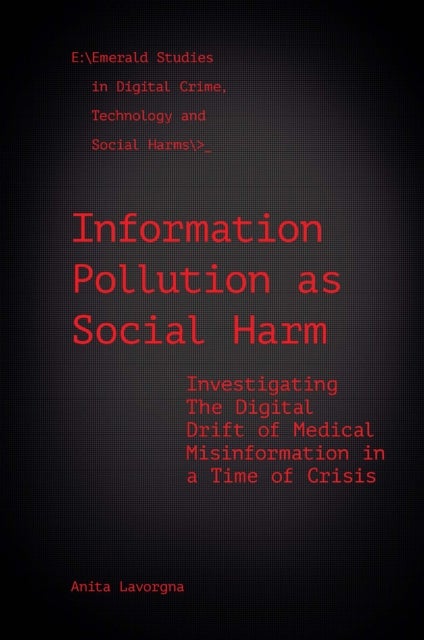
Information Pollution as Social Harm av Anita (University of Southampton UK) Lavorgna
629,-
<p>The coronavirus pandemic struck the world in a very distinctive way: experience from past pandemics or from more recent outbreaks could give us only a limited understanding of how the situation was likely to unfold. In this context, and with cyberspace being increasingly used to support health-related decision making and to market health products, potentially harmful behaviours have been carried out by individuals propagating non-science-based health (mis)information and conspiratorial thinking. This includes, among other actions, boycotting the use of masks and physical distancing, proactively opposing the use of the COVID-19 candidate vaccines, and promoting the use of useless or even dangerous substances to prevent or resist the virus. By relying on a virtual ethnography approach carried out on Italian-speaking alternative lifestyle and counter-information online communities, this book shows how the nature of personal interactions online and the construction of both personal and








